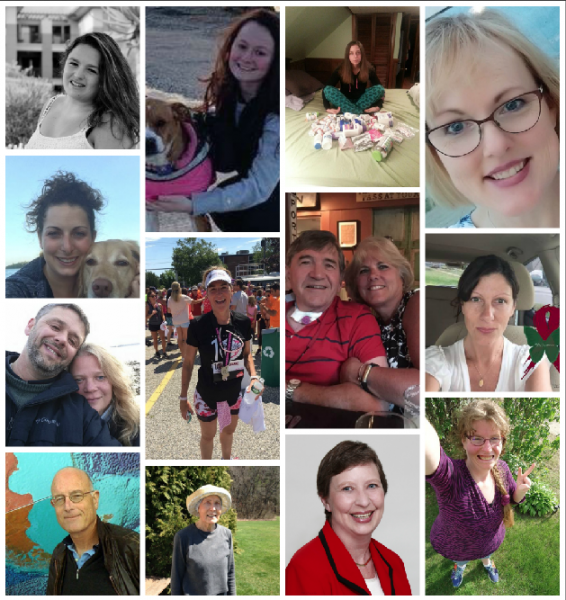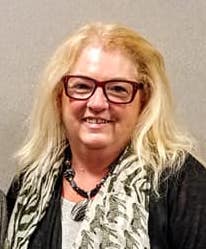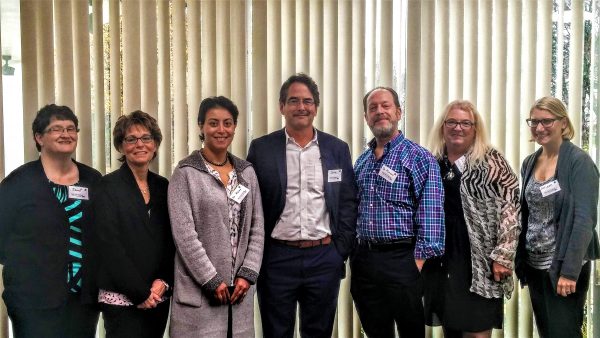Let me begin by defining rare diseases. Congress created the Orphan Drug Act in 1983 and in it defined a rare disease as “a condition that affects fewer than 200,000 people.” What’s the Orphan Drug Act? Here’s what the Genetic and Rare Diseases Information Center states on its website:
Rare diseases became known as orphan diseases because drug companies were not interested in adopting them to develop treatments. The Orphan Drug Act created financial incentives to encourage companies to develop new drugs for rare diseases. The rare disease definition was needed to establish which conditions would qualify for the new incentive programs.
It’s estimated that between 25-30 million people in the United States are living with one of approximately 7,000 rare diseases. The National Organization for Rare Disorders (NORD) has an extensive database of rare diseases.
Personal stories

I’ve shared a number of stories here on the Catching Health blog about people living with a rare disease.
Top to bottom, row by row:
- Brooke Caron has a rare disease called Turner Syndrome.
- Risa Card had a rare pineal gland cancer.
- Darcey Pomerleau has Hereditary Hemorrhagic Telangiectasia or HHT.
- Joe Semmes has pNET or pancreatic neuroendocrine tumors.
- Martina Baker has Mast Cell Activation Syndrome.
- Luanne Cameron had hyperparathyroidism.
- Jean Jackson has alopecia areata.
- Crystal Goodwin has Mast Cell Activation Syndrome.
- Earl Cutter has Multiple System Atrophy or MSA.
- Vicki Jacobs-Pratt has von Willebrand disease.
- Dawn DeBois has Lambert-Eaton Myasthenic Syndrome or LEMS.
- Michelle Spencer had an arteriovenous malformation or AVM.
- Vanessa Child has Prader-Willi Syndrome.
As I looked back at these stories, I noticed some similarities beyond the rare disease connection. For many of the people I interviewed, it took many years to get a diagnosis and proper treatment (if treatment was available). Also, look at the names of the various diseases — most are long, complicated, and difficult to pronounce. And most of them are difficult to deal with.
Julie’s story

Ten years ago, Julie Gortze was diagnosed with dysautonomia, which is a disorder of the autonomic nervous system. People with it have trouble regulating various automatic bodily functions, from heart rate to digestion to eye movements and temperature control. In severe cases, it can be deadly. While not considered rare, it is a complex disorder and it often takes years to get a diagnosis because there is such a lack of awareness
Julie’s symptoms began in childhood and over the years she experienced a number of issues including dizziness, essential tremors, tachycardia, and gastroparesis. She finally got a possible diagnosis when she saw a neuro-ophthalmologist for problems she was having with her eyesight. He put the pieces together, but it took another two years to find a doctor who specialized in her disorder.
Even with so many health issues, Julie says she was high functioning — raised four kids and worked as an acute care nurse. Her failing eyesight forced her to quit nursing.
Recognizing that she needed to connect with other people who also had dysautonomia, Julie’s daughter set her up on Facebook.
That’s when I found out about groups and organizations. I got more involved in a couple of the organizations with the disease they thought I had. I started volunteering and as I started feeling a little better, I got the idea to start a support group. About 20 people came to the first meeting and some lived in the next town over from each other and they didn’t even know each other. Getting people in the same room who understand what’s going on with each other was amazing — it was amazing to be able to offer that.
Rare New England
In addition to supporting each other, Julie invited physicians to attend the meetings to answer questions and wish-granting organizations to share whatever resources they had to offer. A few years later, Julie and some other members of the group decided to create an online organization not just for dysautonomia, but all rare diseases.
Because the problems are the same. It’s not a one-disease area. Patients across the board don’t have cures. Any of them may be fighting with insurance companies to have their medications covered. Nobody understands their diseases, maybe they can’t even pronounce the name of their disease. It’s all across the board.
They widened their disease scope from one to all rare diseases but narrowed their geographical scope to New England. Thus, the name of the organization: Rare New England (RNE). Its mission is to “bring together New England patients, families and providers touched by rare and complex disorders.”
Julie says they continue to offer support to patients and families as well as educational opportunities. They are committed to raising awareness about rare and complex diseases and connecting people with available resources.
We’re not trying to create the resources as much as we’re trying to promote the resources of others. There are tons of resources out there, but most people don’t know about them. Patients and families don’t know about them, even physicians don’t know about them. It’s all about collaboration and everybody working together and promoting what’s out there.
Learn more about RNE on its website or Facebook page. From either, you can find out about other resources or contact someone if you have questions.


Might be interesting to look into Ehlers-Danlos Syndrome. I’ve met a number of people who have it in the past 10 years, just in the Portland area – all women. It typically takes a long time for them to get a diagnosis, with lots of “it’s psychosomatic” dismissals along the way.
Jeffrey, I’ve never heard of it before, but just looked it up on NORD. Do you know someone who would be willing to be interviewed? I would also want to speak to a knowledgable doctor. Thanks and also thanks for sharing the link to this post on Facebook.
For those with alopecia Areata there is now a support group meeting in the Portland area. The next meeting is the 24th of March. Information can be found at the NAAF website.
It is really nice to be in a room full of people who look like me!
Jean, thank you! So glad to hear from you.